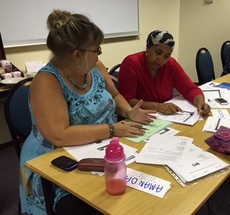
What do we mean by meaningful access and support? How can we create learning environments that promote college completion? Let’s explore these five imperatives from the white paper (see white paper here) and share ways to achieve them.
- Expand evidence-based, comprehensive support system
- Develop innovative funding models
- Promote an ecosystem of education
- Recognize developmental education as a field of practice with professional standards
- Fund research to measure long-term impact
